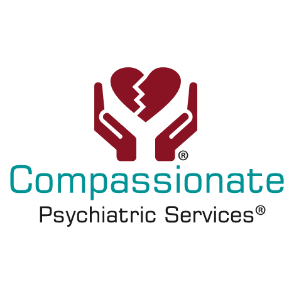Empower yourself with the tools and resources to recognize, respond to, and prevent mental health crises.
September is Suicide Awareness Month, a time to bring attention to a topic that impacts millions but frequently remains hidden. Suicide remains one of the leading causes of death worldwide, yet many struggling with suicidal thoughts or mental health challenges feel isolated and unsure of where to turn for help. At Compassionate Psychiatric Services, we believe that awareness is only the first step toward meaningful action.
Below you will find a comprehensive guide to navigating mental health, from identifying early warning signs to taking actionable steps toward recovery and well-being.
- Awareness: Recognizing the Signs
- Mental health struggles, including thoughts of suicide, often start quietly. Recognizing the signs early can be lifesaving. Look for these key indicators in yourself or a loved one:
- Changes in behavior: withdrawing from friends, avoiding activities once enjoyed, or exhibiting sudden mood swings.
- Hopelessness: expressions of feeling trapped, hopeless, or like life has no purpose.
- Increased substance use occurs when people turn to alcohol or drugs as a coping mechanism for overwhelming emotions.
- Talking about death: Mentioning or fixating on death, dying, or harming oneself.
Even though these signs may appear clear after the fact, it’s easy to ignore them or write them off as temporary stress. Awareness is key to spotting them early.
Understanding: The Mental Health Conditions Behind Suicidal Thoughts
Mental health disorders like depression, anxiety, and PTSD can increase the risk of suicidal thoughts. Often, people struggling with these conditions feel alone, believing their pain is too intense to overcome. It’s critical to understand that these thoughts are a symptom of mental illness, not a reflection of weakness or failure.
- Depression can create an overwhelming sense of hopelessness and fatigue.
- Anxiety might drive incessant worry and fear that feels impossible to escape.
- PTSD can cause flashbacks, nightmares, and feelings of being “stuck” in a traumatic moment.
It is important to remember that mental health conditions are treatable, and no one needs to suffer in silence.
Action: Reaching Out for Help
If you’re feeling overwhelmed or notice signs of mental health challenges in a loved one, acting is essential. There are several ways to begin this journey:
- Talk to someone: Reach out to a trusted friend or family member. Just talking about how you feel can alleviate some of the pressure.
- Seek professional support: A mental health professional can provide the tools and therapies needed to manage these feelings. Treatments like Transcranial Magnetic Stimulation (TMS), SPRAVATO, and MeRT can offer innovative solutions for depression and anxiety that haven’t responded to traditional methods.
- Crisis lines and hotlines: For immediate help, contact a suicide prevention hotline or text line. Trained professionals are available 24/7 to offer support and guidance.
- Prevention: Building a Supportive Environment
Communities play a crucial role in preventing suicide. Whether you’re an individual, friend, or organization, you can contribute to a support network.
- Encourage open conversations: Talk about mental health openly and without stigma. Let others know it’s okay to ask for help.
- Educate yourself and others: Learning about mental health conditions and suicide prevention can help you recognize the signs in those around you.
- Be proactive: If you sense someone is struggling, offer your support. Don’t wait for them to reach out.
- Healing: Long-Term Care and Management
Navigating mental health isn’t a one-time event; it’s a lifelong process. Even after seeking help, maintaining mental health requires ongoing care. Here are some steps towards achieving long-term mental wellness:
- Therapy and counseling: Continued therapy helps to build coping strategies and work through the underlying causes of mental health issues.
- Medication management and treatments: Over time, medication management and treatments like TMS or MeRT can help to stabilize moods and improve mental well-being.
- Self-care practices: Daily habits such as regular exercise, meditation, healthy eating, and adequate sleep can have a profound effect on mental health.
Taking the first step
If you or someone you know is struggling with mental health or suicidal thoughts, Compassionate Psychiatric Services is here to help. Our compassionate and experienced team offers evidence-based treatments for depression, anxiety, PTSD, and more. Suicide prevention starts with awareness, but real change comes from acting. During Suicide Awareness Month and beyond, let’s work together to build a world where no one feels alone in their struggles. Reach out to CPS today, educate yourself, and know that help is always available.



